What is the web of Wyrd?
The Web of Wyrd is a metaphor for fate and destiny derived from women's spinning. As the individual fibers turn round the spindle, or are woven together as the warp and the woof, by the Norns at the foot of Yggdrasil, they become the thread of our lives, or so Norse mythology tells us.
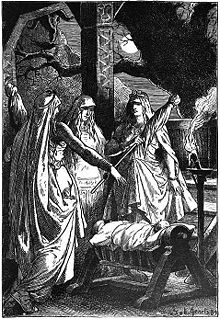
Norns at the foot of Yggdrasil, the tree of the world.
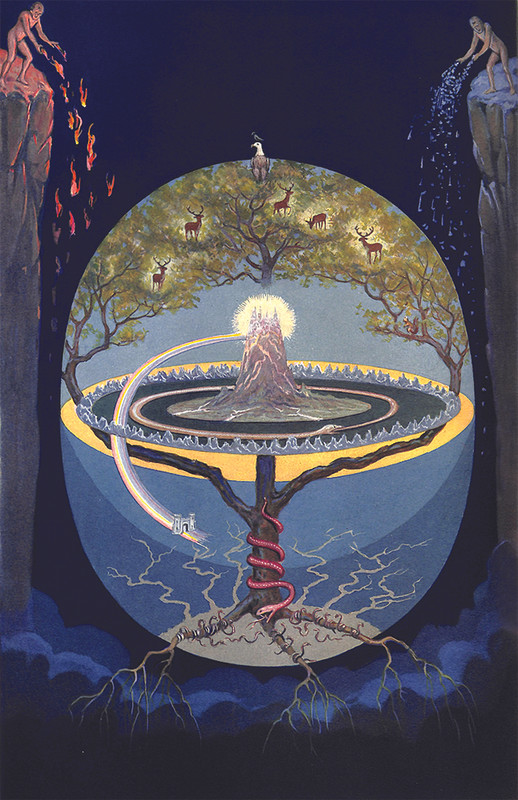

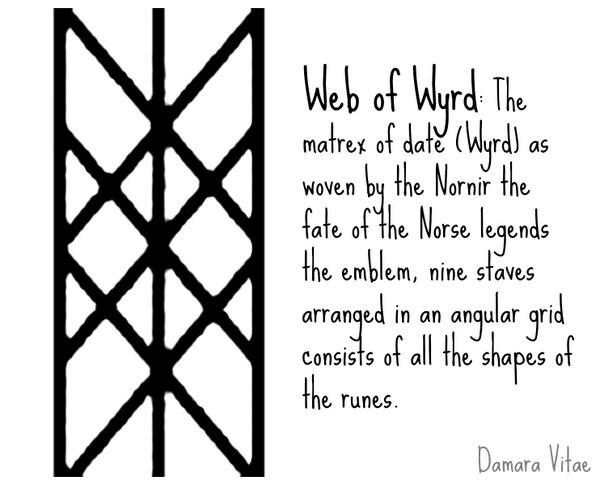
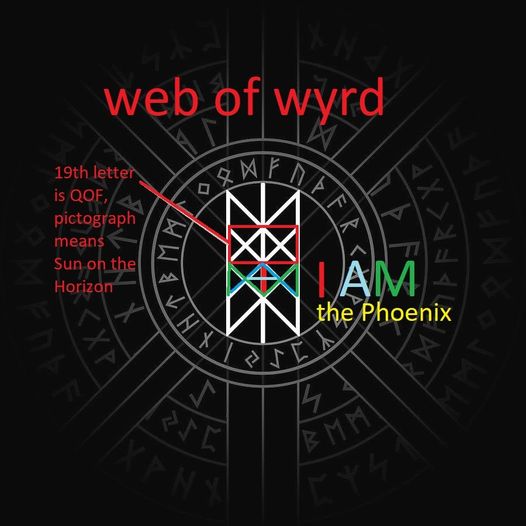
Here is another interesting rabbithole about the Freemason's Magic Square:

I noticed G was in the 5 spot but it's letter value is 7. What if you flip the 5 and 7 in the magic square? If you follow the lines in the Masonic symbol and end in the center, you end up with 3175 (not flipped since 7 is already in the sequence) for the Square and 6987 if you follow the Compass (but do flip it to 7 since 7 is not already in the sequence).
If you convert these numbers as numerical positions in the order of the alphabet you get "CAGE" and "FIGH".

The etymology of the word Figh is from Old Irish figid (“weaves, plaits, intertwines”, verb), from Proto-Celtic *wegyeti (“to weave, compose”), from Proto-Indo-European *weg- (“to spin, weave”). If you combine the two symbols, it seems to say "to weave a cage".
This immediately led me to think of spiders and their web. Some spiders form their webs in spirals that suggest the repetitive pattern of the golden spiral. The seeds of a sunflower, which start in the centre and radiate outwards to fill the space, repeated endlessly, are a perfect example of the Golden Ratio in nature. That angle is 137.5 degrees. The other angle relates to plant arrangments (phyllotaxis) and is 222.5 degrees. Both of those angles are allegedly used in the serifs of the Alpha and Omega engraved into the sarcophagus in the King's Chamber.
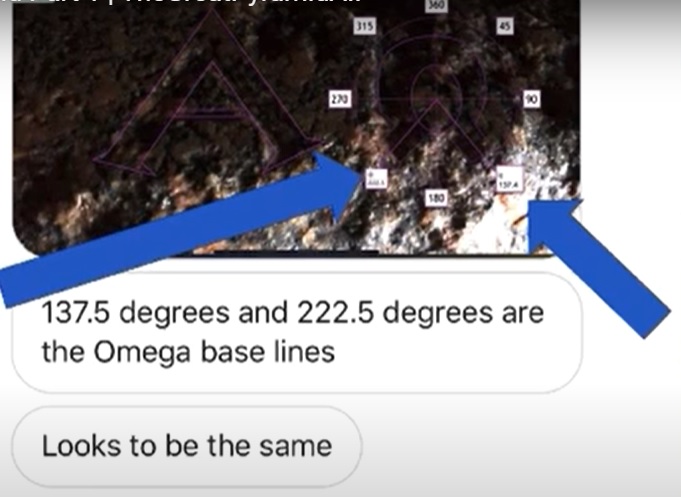
Regarding the spider and the web, this got me thinking about the one dollar bill and the hidden spider along the edge of the $1 bill. The patterns around the edge appear to be a spider's web. I will be looking further into old Irish and Celtic stories about spiders to see what I can dig up. Just an interesting observation, but it appears that it could be relevant in some way to further information or clues about Freemasonry.



No comments:
Post a Comment
Note: Only a member of this blog may post a comment.